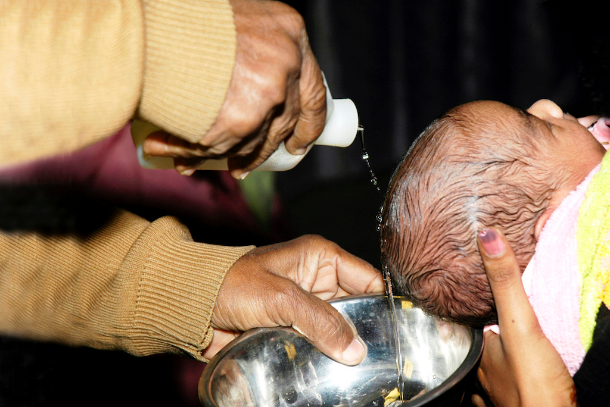
Stephan Uttom and Rock Rozario, Dhaka, Bangladesh 14 May 2019
In January, a group of masked men blocked some Catholic villagers who were heading home from a church liturgy about 80 kilometers west of the Bangladeshi capital of Dhaka and gave them a beating so severe at least one was hospitalized.
The man was so traumatized by the attack that when he was discharged, he sought refuge in another church-run sanctuary near his home in Uthali of Manikganj District for a month.
Other villagers were too scared to revisit the church until police were deployed there and started conducting patrols in its vicinity, according to Father Thomas Corraya, who reported the mob attack to the authorities.
“Things are much better now and we’ve been assured of more support from the police,” said the prelate, who serves as the resident priest for around 600 Catholics in Uthali.
However, he admitted he is still wracked with fear whenever he sets off for faraway villages to offer pastoral services — never knowing if he will return home unscathed or in one piece, if at all.
Radical Islamist anger
All of the victims in the January attack had recently converted from Islam. Some had reportedly received death threats from local Muslims after the church welcomed 12 new Catholic converts in November.
Father Corraya said Uthali had been a “troublesome area” for a long time before the beatings occurred.
“Our constitution guarantees freedom of religion and anyone can convert to whatever religion as they wish,” he said.
“The problem is that Bangladesh is a Muslim-majority country and when Muslims convert to other religions, it offends the sentiment of other Muslims.”
Mizanur Rahman, the chief of Shibaloy police station, under whose jurisdiction Uthali falls, said his investigation had not concluded the attack was motivated by anger over the victims’ recent conversion.
“That being said, we are ready to assist the Church and Christian community in the area. Police have been deployed to secure the Church and Christians will be protected.”
Converting to other faiths is legal and nothing new in this part of the world, said Father Albert T. Rozario, a Supreme Court lawyer and legal adviser of Dhaka Archdiocese, which covers Uthali.
“Once upon a time, all people in this land were Hindus, and then they embraced other faiths including Islam, Christianity and Buddhism,” he said. “People are free to choose and practice their faith, but everything must be done the right way and not through proselytizing for material gain.”
He said few people convert to Catholicism and the number remains roughly the same each year.
“We don’t encourage it, unless people approach us and follow due procedure,” Father Rozario noted.
Christians account for less than one percent or 600,000 of the country’s 160 million people. Catholics numbered about 350,000 as of 2017.
A small community
In Uthali, the church’s congregation has grown in recent decades thanks to an influx of migrant workers and converts from Islam and Hinduism thanks to the preaching of Protestant and Catholic missionaries.
The Bangladesh Baptist Fellowship Church operated in the area from 1988-1997 but is believed to have shut down due to heavy opposition from local Muslims.
Catholic missionaries from the Milan-based Pontifical Institute for Foreign Missions (PIME) stepped in to fill the vacuum the following year and remained active there until 2015.
During that period, missionaries set up a new church, two schools and two hostels to strengthen the Catholic Church’s presence in the area.
Local diocesan priests replaced PIME missionaries in 2015, at a time when Bangladesh was experiencing a rise in Islamic militancy.
Extremists pledging allegiance to global terror outfits like Al-Qaeda and the so-called Islamic State have murdered about 50 people including atheist writers, liberal academics, gay activists, foreigners and religious minorities in various parts of Bangladesh since 2013.
They have also issued death threats to Catholic bishops, priests, other Christian leaders, and aid workers based in various parts of Bangladesh.
In 2015, church officials had to transfer Father Dominic Rozario from Uthali to the capital Dhaka after masked men raided his church at night looking after him.
Their motive remains unknown, but it is presumed the priest’s missionary activities in Uthali and other parts of Dhaka Archdiocese made him a target.
In November of that year, an Italian priest was shot in northern Bangladesh — the third attack on foreigners in months.
“In every country, minority communities face various threats from the dominant group,” Father Albert Rozario said.
“This is something we have to live with. We remain vigilant and seek protection from the authorities when we need it.”
